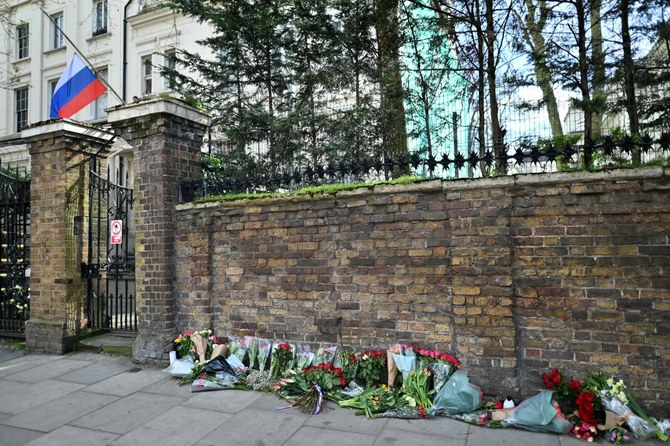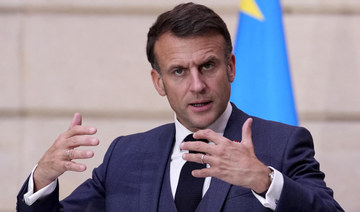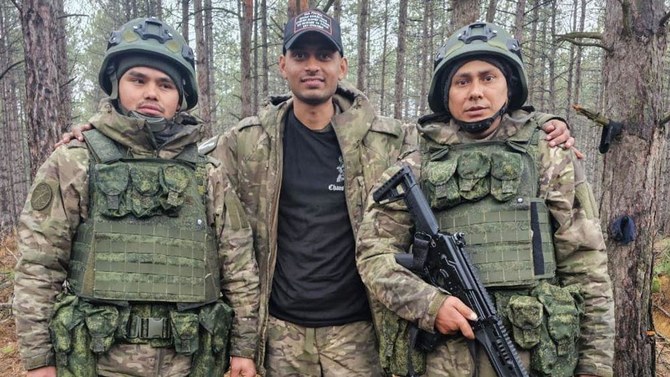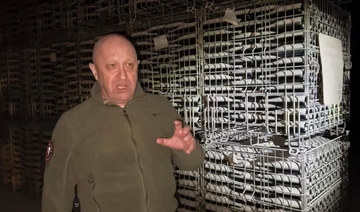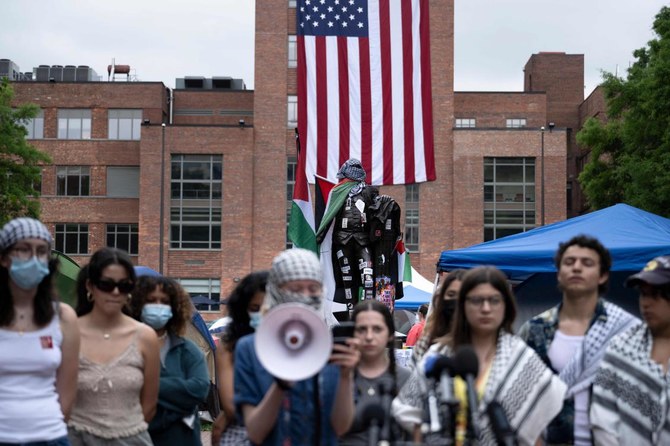NEW DELHI: Israel is attempting to control the Indian media narrative on Palestine, journalists have warned, as they denounced a public attack by Tel Aviv’s envoy on one of India’s most prominent magazines.
Concerns over efforts to influence Indian journalists and their coverage of Israel’s deadly onslaught on Gaza began to emerge last month, when groups of reporters from India suddenly started to fly to Tel Aviv, sharing footage showing them embedded with Israeli troops.
Those that Arab News spoke to have declined to comment on whether they were sponsored by the Israeli government but admitted they were facilitated by its security forces and obtained free visas.
Since the beginning of Israel’s daily bombardment of the Palestinian enclave in retaliation for an Oct. 7 attack by the Gaza-based militant group Hamas, the Israeli ambassador in New Delhi has hosted regular briefings for Indian journalists and this week made a public statement widely seen as an attempt to interfere in their reporting.
In a letter dated Oct. 31, which he shared on social media on the same day, the envoy, Naor Gilon, accused Frontline, an English-language fortnightly published by The Hindu Group, of “importing fake news into the mainstream media.”
The ambassador’s comments came after the magazine, which is famous for in-depth reporting, published a story on the situation in Gaza that featured comments from both Israeli sources and a Hamas spokesperson.
Gilon wrote that interviewing Hamas was “shameful” and raised “serious doubt about journalistic standards and ethical considerations” and that he hoped that The Hindu “reflects on this incident and takes measures to ensure that future interviews are conducted with the rigor and integrity that your readers deserve.”
The authenticity of the letter was confirmed by Frontline editor Vaishna Roy, to whose email address it was sent.
Roy said she was very surprised by “the tone and the tenor” of the letter.
“There is a certain anger, which one doesn’t expect from a diplomatic position, an important position, as the ambassador to a country. There’s lack of restraint and (there is) a personal attack, which surprised me,” she told Arab News.
“We interviewed two Israeli voices and one former PLO spokesperson, and we interviewed the Hamas head of international relations ... As an editor I thought it is important to give both sides a hear.”
Although sent to Roy, the letter was addressed to Suresh Nambath, editor of The Hindu daily, which is owned by the same media group.
“Typically, one writes a letter to the editor, and we would publish it with our response. The ambassador sent it to my email ID but did not address me. When I pointed it out, he did not respond. Instead, the ambassador published the same letter online,” Roy said.
Multiple responses to the ambassador’s post, which Arab News reviewed, contained harassment and threats against the Frontline editor.
“It is unprecedented and it’s not a good omen. We’re seeing a sudden rise in a certain kind of propaganda, which refuses to admit a single voice of dissent,” Roy said.
“They are trying to control the narrative ... The reason why he went to social media is because he knew it would immediately set the troll army on me. And that is exactly what happened.”
Sanjay Kapoor, editor of the English-language political magazine Hardnews, said he saw the same trend, which has also been facilitated by uncritical consumption of Western narratives in India.
“Our media follows the Western media. Many a time, they even carry reports that are contrary to our foreign policy. Many would believe that is a sign or a symbol of independent journalism, but that’s not true,” he told Arab News.
“The Western powers and Israel are trying to control the narrative and ensure that the Palestinian point of view never comes out.”
But despite this, a foreign official’s direct intervention in editorial matters has been seen as taking these efforts to yet another level — bordering encroachment.
“This is unwarranted and unacceptable to the Indian media,” said Umakant Lakhera, former president of the Press Club of India.
“The Israeli ambassador in India has no business, no right, to dictate terms and conditions to Indian media, and to preach the protocol of the ethics of journalism.”
He found the ambassador’s comments also “unethical” as they came from a representative of a state whose security forces have killed at least 31 Palestinian journalists in the past three weeks.
“Why have they been killed? Because they are giving the ground reality, they are reporting the ground situation,” Lakhera said.
The Israeli ambassador’s letter against Frontline’s editor and further activity on social media were not, however, the only recent incidents that made journalists raise their eyebrows.
“The same gentleman recently made an extraordinary claim that there was such enormous normal support for Israel in India after Oct. 7 that he could muster the whole contingent of Indians for the IDF,” said Anand K. Sahay, columnist and former editor of the Deccan Herald daily.
“Nevertheless, it is not a question of this ambassador alone. Israel’s ambassador to the UN has gone so far as to accuse the secretary-general of supporting terrorism,” Sahay told Arab News, referring to the Israeli UN representative’s call for the resignation of the organization’s chief, Antonio Guterres, who said that the Hamas attack “did not happen in vacuum.
“With America’s help, Israel has pretty much behaved like a terrorist state itself.”
Sahay hopes that as Israeli Prime Minister Benjamin Netanyahu is “losing popularity day by day in his own country,” Indian Prime Minister Narendra Modi will distance himself from him and his “outright militarist” government.
“If he does so, no ambassador of Israel in New Delhi will in the future be so impertinent as to go around lecturing the media in this obnoxious way,” he said.








